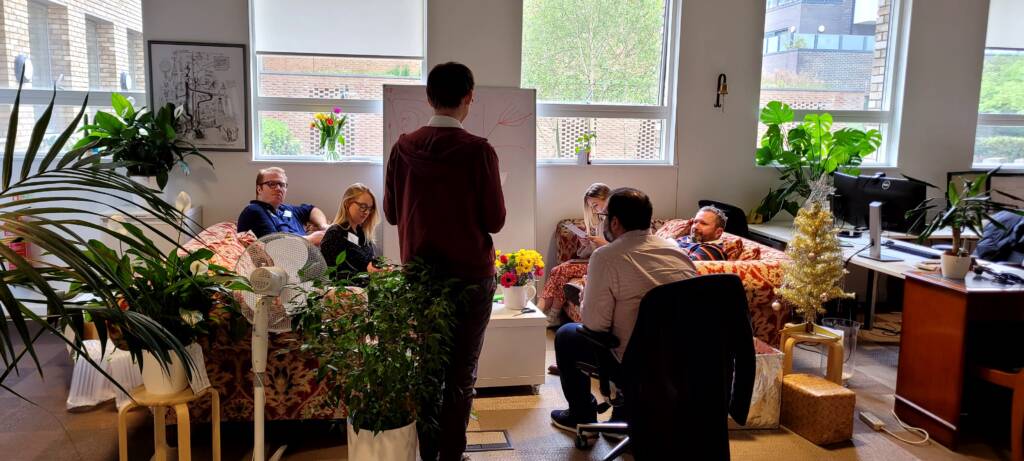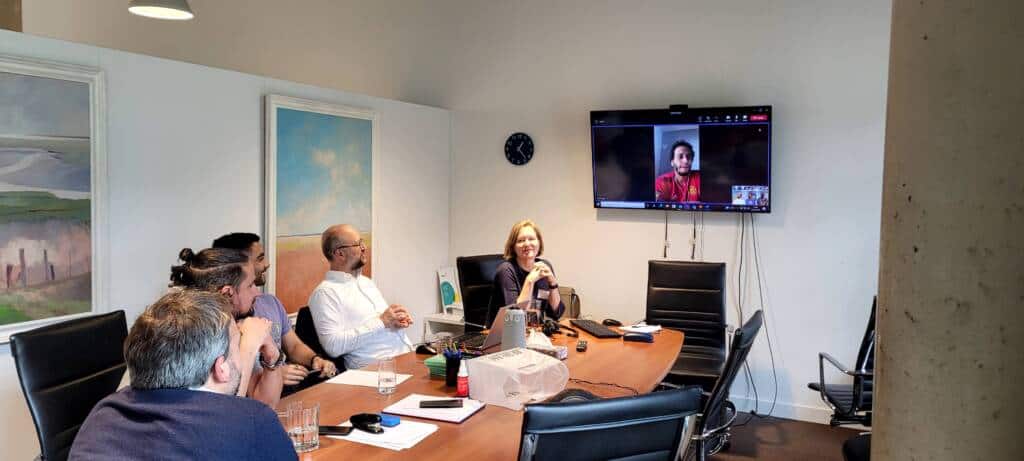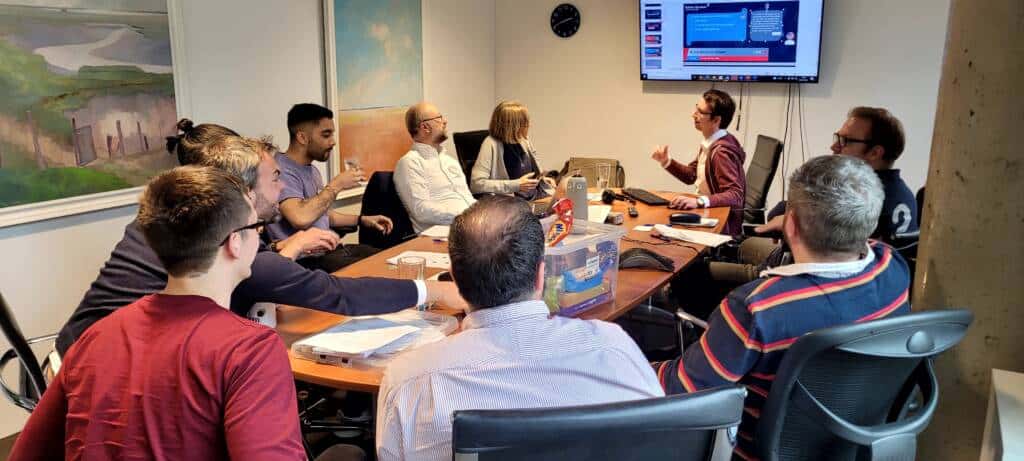A sideways look at economics
I learnt a new word recently — ‘larping’. If you’re as baffled as I was what that means, it stands for live action role-playing: the kind of activity associated with the Sealed Knot historical reenactment society, or the people who dress up as their Dungeons & Dragons avatar at gaming conventions. What does this have to do with Fathom? Read on to find out…
Earlier this month, I larped with Fathom. Fathom has designed other economic games (also known as tabletop exercises) in the past but this was my first experience and, to be honest, I absolutely loved it! The purpose of using larping is to tease out how policy decisions are made and to help players to understand the consequences of those decisions. In this case, the aim was to understand the impact that industrial strategy can have on long-run GDP, inequality and other geopolitical outcomes.
Our boss Erik, experienced larper that he is, explained the key features to me:
- Suspension of reality: to larp successfully, you must immerse yourself in the exercise and forget about the outside world. Arguably, the best way to do this is to fully assume another character, preferably one with a strong personality, and remain in that character at all times. Some people really take to this. In an internal trial run, Fathom’s brand manager Emma portrayed a scarily convincing, desk-thumping Donald Trump; while our technical director Andrea got in touch with his inner ‘tech bro’. Ultimately, policy is made by individuals, not institutions, so understanding the behaviour and interaction of key individuals is often the key to predicting policy decisions and attempting to shift them.
- Policy choices and their implications: in reality an infinite number of policy choices exist, and one of the reasons that governments appear to move slowly is that they evaluate a relatively large number of these before settling on the ones they wish to pursue. That is not feasible in the context of a short game, and so we must limit the policy menu. Moreover, when you limit the number of options then those options must be polarising — economics is ultimately a study of trade-offs, so if you allow the option to ‘mix and match’ then you are unlikely to understand the impact of individual policies. Only by pulling the choices apart can you assess how you might want to combine policies.
- The more larping, the better: our tabletop exercises are underpinned by macro models. This is how we’re able to simulate the impact of policy choices. We could simply deliver these results in the form of a presentation, and we often do. But this isn’t the point of larping: the point is the discussion. Our clients are bright people (clearly, they hired us) and their views are interesting. Our tabletop exercises work by providing them with a framework (i.e., a model with scenario outputs) and a way of bringing it to life (i.e., the live-action element). In terms of the balance between the two, more interaction and less modelling is always the way to go. We asked participants throughout the session about their intended policy choices and one of the most interesting observations was how often their preferences flipped purely on the basis of discussion and with no new information introduced. In other words, diplomacy can work.
- Going rogue: Erik advised me to build flexibility into the game. That was good advice. On the day, the game did not go to plan. That’s not to say it went badly — quite the opposite — but rather that participants didn’t exactly follow the rules as we envisaged them. But that’s fine, even good. In the real world, there are no rules! There were policy leaks, diplomats were ejected from meetings, and press statements were often vague and vacuous and, occasionally, contained outright lies. But, in the real world, misinformation and diplomatic blunders abound — why should the game be any different? Perhaps the most interesting observation was that the decisionmakers didn’t always follow the recommendations of their advisors.
So, what are my lessons from larping? The first is that policymaking is as much about the preferences of individuals as anything else. Sometimes you can shape those preferences with evidence-based arguments (though this is hard, and decisionmakers will sometimes go rogue). My final reflection is that you cannot truly understand a situation until you suspend reality and put yourself into the shoes of others. In short, everyone needs to larp from time to time.
These pictures show Fathomites larping during the internal trial run of the tabletop exercise.



